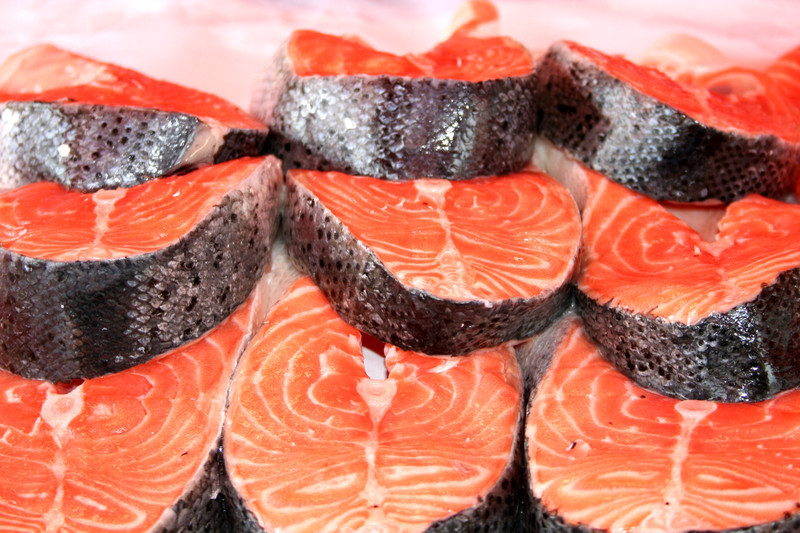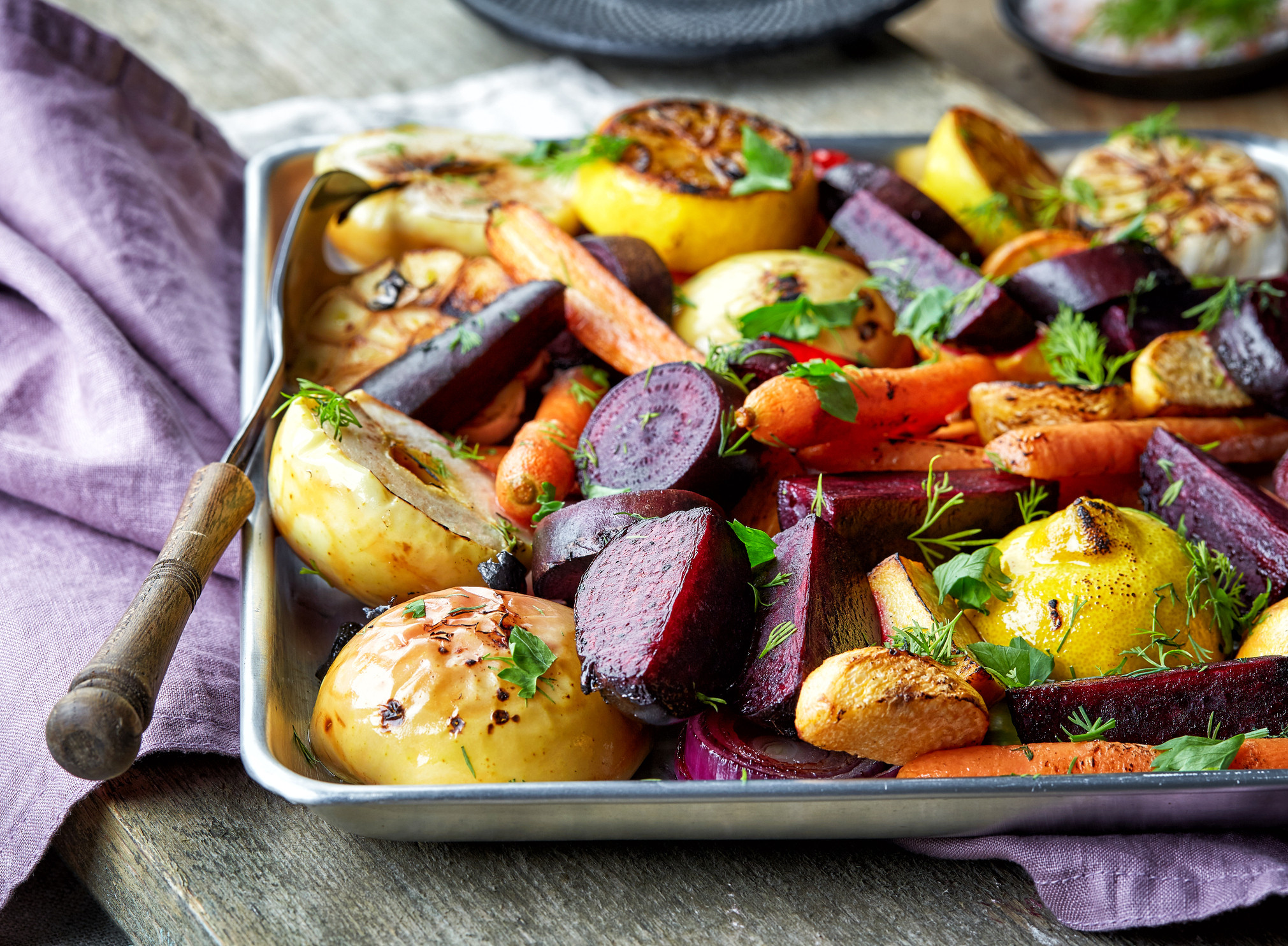
New thinking about plaque in arteries that feed the brain

Want to prevent shifting teeth? Maybe you need retainers

What you need to know about the new dietary guidelines

Food that’s healthier for people and planet can be cheaper, too

New evidence that polyphenol-rich foods help the heart

8 simple ways to reduce ultra-processed foods in your diet

How to curb your stress eating

How to spot Parkinson’s disease symptoms

Heart failure symptoms in women: How they’re different

GERD diet: Foods to avoid to reduce acid reflux
Nutrition Archive
Articles
Think twice before going gluten-free
News briefs
Image: © Elenathewise/Thinkstock
Unless you have celiac disease, banning gluten from your diet won't boost your heart health—and may actually hurt it, suggests an observational study published May 2, 2017, in The BMJ. Gluten is a protein in wheat, barley, and rye. In people with celiac disease, eating gluten triggers the body to attack the small intestine, causing inflammation and leading to malnutrition and gastrointestinal distress. The inflammation, in turn, can increase heart disease risk. In these people, eliminating gluten stops the attack on the small intestine, reduces inflammation, and helps reduce heart disease risk.
A Harvard research team wondered whether people without celiac disease might also lower their heart disease risk by eliminating gluten from their diets. In a study of more than 110,000 healthy men and women followed for about 25 years, the researchers did not find a clear difference in the number of heart attacks that occurred among people who ate the most gluten each day, compared with people who ate the least. However, in people who avoided gluten by avoiding whole grains — which contain valuable nutrients — the risk of heart disease rose. So, if you're among the great majority of people who don't have celiac disease, avoiding gluten won't reduce your risk of heart disease, and it might increase the risk if it means you cut back on whole grains.
What can precision nutrition offer you?
A diet tailored to your DNA may be in the future, but you can personalize your eating plan now in several ways.
The one-size-fits-all approach hasn't been very successful, either in clothing or in medicine, because most of us are not the "average" woman. That's one reason researchers are now investigating whether customizing peoples' diets according to their DNA — an approach known as precision nutrition — can improve their health.
As the cost of sequencing an individual's genome (a readout of all a person's DNA) has continued to fall, incorporating genetic information into nutrition advice has become increasingly feasible, says Dr. Frank Hu, chairman of the Department of Nutrition at Harvard's T.H. Chan School of Public Health. The ready availability of human genetic information has given rise to a new scientific field, nutrigenomics — the study of the influence of people's genes on how they metabolize nutrients. Nutrigenomics has opened the door to precision nutrition — the creation of individualized eating plans based on a person's genome.
Does diet soda raise stroke risk?
Some studies suggest a possible link. But don't switch to regular sugary sodas — try infused water instead.
For diet soda fans, recent news reports linking these popular drinks to a higher risk of stroke may have been alarming. A closer look at the study behind the headlines suggests there's no need to panic. But beverages naturally low in calories are probably a healthier option than artificially sweetened drinks.
For starters, observational studies like this one (see "Diet soda and the brain: The latest findings") cannot prove cause and effect. Also, only 97 people had strokes during the 10-year follow-up, which means only two or three of those strokes could possibly be attributed to drinking diet soda, says Dr. Kathryn Rexrode, an associate professor of medicine at Harvard-affiliated Brigham and Women's Hospital who co-authored an earlier, larger study looking at soda consumption and stroke risk.
Six healthy snacking strategies
How can you keep snacking from derailing your healthy eating program, not to mention weight control? Try these tips.
Don't skip meals. Skipping meals may seem like a good way to cut calories, but in fact this just makes you so hungry later in the day that you're vulnerable to devouring mega-portions of snack food, in order to supply your body with easily digested sugars.
What to do about mercury in fish
Fish is an excellent source of protein, and its healthy oils protect against cardiovascular disease. Because a diet rich in seafood protects the heart and aids neurological development, fish remains an important component of a healthy diet.
However, nearly all fish and shellfish contain traces of mercury, a toxic metal, and some seafood contains other contaminants known as persistent organic pollutants (POPs). As small fish are eaten by larger fish up the food chain, concentrations of mercury and POPs increase, so that large, predatory deep-ocean fish tend to contain the highest levels. That makes it best to avoid eating large fish, such as shark, swordfish, tilefish, and king mackerel. As long as you avoid these higher sources of mercury, the benefits of eating fish far outweigh the risks of mercury in fish.
This is your brain on alcohol
It's no secret that alcohol affects our brains. Although excessive drinking is linked to an increased risk of dementia, decades of observational studies have indicated that moderate drinking has few ill effects. However, a recent British study seems to have bad news for moderate drinkers.
No heart benefit from multivitamins, even if you have a lousy diet
Research we're watching
Image: © namenko/Thinkstock
Do you swallow a daily multivitamin, hoping to make up for a less-than-ideal diet? Sorry, but this strategy won't stave off heart disease, according to a study published online April 5, 2017, by JAMA Cardiology.
Previous research has also failed to find convincing evidence that a daily multivitamin lowers the risk of heart disease or cancer. But these studies didn't always account for the participant's dietary habits, which could potentially skew the results. In theory, people with poor diets might reap greater benefits from vitamins than those who eat healthier diets.
How steak and eggs may increase heart attack risk
Image: © gbh007/Thinkstock
New research may help explain why diets rich in animal-based foods are linked to a higher risk of heart attack.
The average American diet contains about 300 milligrams per day of choline, a nutrient found in meat, eggs, and milk. Earlier research found that when gut bacteria feed on choline, they make a compound called TMA. In the liver, TMA is converted to TMAO — a compound closely tied to heart disease risk.

New thinking about plaque in arteries that feed the brain

Want to prevent shifting teeth? Maybe you need retainers

What you need to know about the new dietary guidelines

Food that’s healthier for people and planet can be cheaper, too

New evidence that polyphenol-rich foods help the heart

8 simple ways to reduce ultra-processed foods in your diet

How to curb your stress eating

How to spot Parkinson’s disease symptoms

Heart failure symptoms in women: How they’re different

GERD diet: Foods to avoid to reduce acid reflux
Free Healthbeat Signup
Get the latest in health news delivered to your inbox!
Sign Up











